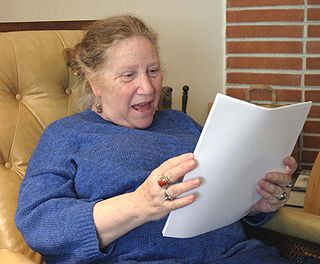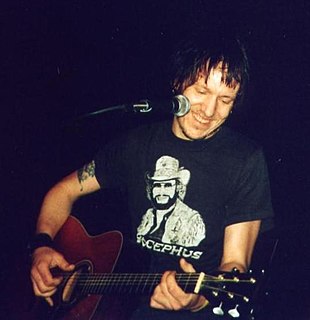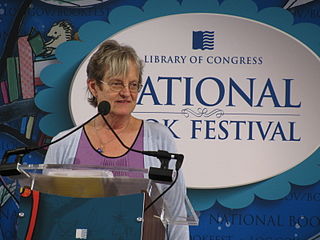A Quote by Diane di Prima
I think the poet is the last person who is still speaking the truth when no one else dares to. I think the poet is the first person to begin the shaping and visioning of the new forms and the new consciousness when no one else has begun to sense it; I think these are two of the most essential human functions.
Related Quotes
When you speak a foreign language, you become someone else. If you aren't used to speaking a language, and you start speaking it again, for the first few sentences you'll find yourself in very strange shape, because you're still the person who was speaking the first language. But if you keep speaking that language, you will become the person who corresponds to it.
I'm not scared anymore, I just ... I don't know. I think it's because I saw someone else, someone behind your face, like you'd taken off a mask. It was still you, but it wasn't. And I don't think that person is going to hurt me, or Marci, or anybody else, but ... I guess the thing is that I don't know anything about that person. At all. And that's what scares me more than anything - that there could be two people, so different, and one of them so secret.
That's a fairly Wordsworthian way to look at things! But yeah, actually - part of the poet's work, I think, is to maintain or reintroduce the imaginative capacity of their earlier self while nonetheless maturing. And I do think the more successful the poet is at this particular thing, the greater their achievement as a poet.
Judge: And what is your occupation in general? Brodsky: Poet, poet-translator. Judge: And who recognized you to be a poet? Who put you in the ranks of poet? Brodsky: No one. And who put me in the ranks of humanity? Judge: Did you study it?...How to be a poet? Did you attempt to finish an insitute of higher learning...where they prepare...teach Brodsky: I did not think that it is given to one by education. Judge: By what then? Brodsky: I think that it is from God.
One of the appeals of William Carlos Williams to me is that he was many different kinds of poet. He tried out many different forms in his own way of, more or less, formlessness. He was also a poet who could be - he was a love poet, he was a poet of the natural order and he was also a political poet.







































